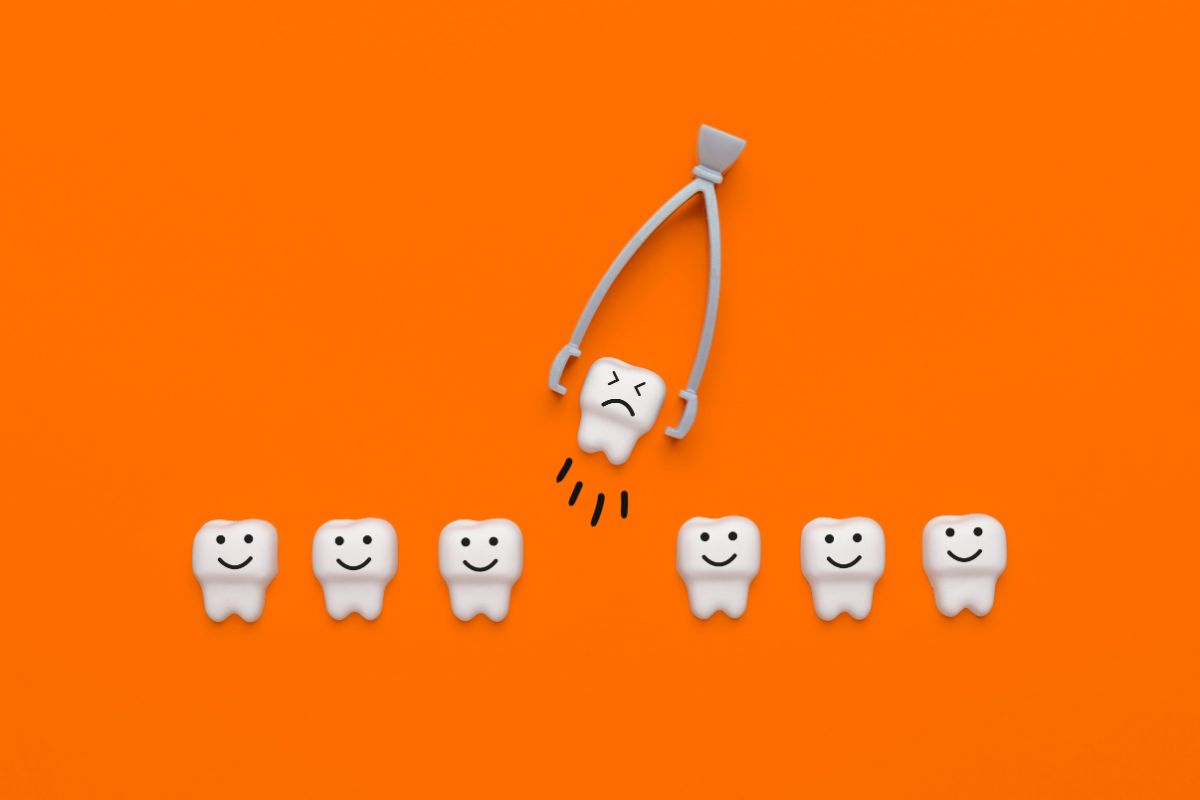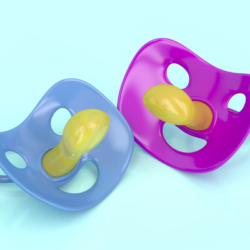If you’re the parent of an infant, you know how difficult teething can be to manage. Babies can become very restless and irritable, and it can be difficult to calm them down. Although teething is an inevitable part of life for all children, there are ways to relieve the pain and discomfort associated with this natural process. In this article, we’ll look at how homeopathy can help relieve teething pain in infants and young children.
What is homeopathy?
Homeopathy is an alternative medicine based on the principle of similarity. This means that homeopathic treatments are chosen according to an individual’s specific symptoms, rather than treating the underlying disease. Homeopathic remedies are made from natural substances such as plants, minerals and animals.
How can homeopathy help with teething?
Homeopathic remedies can be used to relieve a variety of symptoms associated with teething in infants and young children. Some remedies commonly used to treat teething pain in children include:
Chamomilla
Chamomilla is often recommended for children who are extremely restless and irritable during teething. Babies who need Chamomilla may have red, hot cheeks and may be difficult to calm.
Belladonna
Belladonna can be useful for children who have a fever during teething. Babies who need Belladonna may be drowsy, but also restless and irritable.
Calcarea phosphorica
Calcarea phosphorica is often used to help strengthen milk teeth and bones in infants and young children. This remedy can also be useful for children who have trouble sleeping during teething.
What are the specific homeopathic treatments for teething pain?
There are many. Most of them have the advantage of calming the pain but also encouraging teething. The two great classics are Chamomilla and Calcarea Carbonica. Chamomilla 7 CH is particularly recommended for babies who are very sensitive to pain, become short-tempered, demand to be held or have green diarrhoea. The generally recommended dose is 3 granules several times a day. Calcarea Carbonica also works very well, with 1 dose of 9 CH followed, 15 days later, by 1 dose of 15 CH, or as suppositories. There are also other treatments, more specific to certain symptoms.
Some examples of these more targeted treatments for symptoms associated with teething?
Podophyllum in 7 CH is recommended when the diarrhoea is yellow, Phytolacca in 5 CH is well suited to babies who want to bite. In this case, it is also possible to administer a preparation consisting of Calcarea Carbonica 8 CH, Magnesia Phos 6 CH, Chamomilla 6 DH (diluted to the tenth) and Passiflora 6 CH.
How should homeopathic remedies for teething be used?
Homeopathic remedies can be taken as granules, drops or tablets. The doses and frequency of administration depend on the child’s age and the severity of the symptoms.
It is important to note that homeopathic remedies should be chosen according to each child’s specific symptoms. It is advisable to consult a qualified homeopathic practitioner to determine the most appropriate remedy for your child.
Locally
We can sometimes observe :
- Pericoronitis with inflammation of the mucosa, hypersalivation and repercussions on character (agitation, insomnia). Suppuration may even occur.
- Gingivitis.
- A follicular cyst with swelling of the gum line.
Borax :
Gingivitis, stomatitis with mouth ulcers (these lesions are very painful at the slightest contact, especially with acidic or salty food. The baby cannot suckle and refuses the breast or bottle.
Dosage: Borax 5CH, 5 granules 3 or 4 times a day. This medicine is also suitable for oral candidiasis in infants (thrush).
In this particular case, it is a good idea to wash the mouth with bicarbonated water to alkalinise the oral environment, and to take a daily dose of Candida albicans 15 CH or an isotherapic for mycotic mouth ulcers.
Phytolacca :
Infants have an irresistible urge to press their gums together during teething. Phytolacca is a plant with homeopathic properties that are particularly suited to teething symptoms. It is known to soothe pain and reduce inflammation in the gums.
Dosage: Take 7 CH, 5 granules 3 or 4 times a day.
Mercurius solubilis :
Mercurius solubilis is a homeopathic medicine used to treat oral diseases and associated disorders, including inflammation of the gums, hypersalivation, thick and swollen tongue, and stomatitis. It is also prescribed when patients experience intense thirst.
Recommended dosage: Take 9 CH, 5 granules 1 to 2 times a day.
General
Concurrently, the following may be observed:
- Salivary and/or nasal hypersecretion.
- Redness of the cheeks or, more often, of just one cheek. Cheek eczema or diaper rash.
- Heat flush.
- Reflex earache.
- Digestive problems: anorexia, vomiting, diarrhoea, etc.
- Nervous behaviour disorders: agitation, anger, insomnia.
A certain number of medicinal substances cause similar symptoms in their pathogenetic experiments. They are therefore the corresponding homeopathic medicines.
When faced with general or concomitant symptoms, the main drug for teething troubles should be considered:
Chamomilla :
The pathogenesis reveals hyperaesthesia to pain, an irritable, short-tempered and temperamental character, and digestive problems. Chamomilla is therefore indicated for infants who are tired from teething, short-tempered and temperamental. Very often, one cheek is red and warm, the other pale and cold. Character disorders improve when the child is carried in the arms or taken for a ride in the car. During teething, hyperthermia, diarrhoea or bronchitis may occur.
Dosage: For normally well-behaved and gentle infants who become short-tempered when teething is painful, give 5 Chamomilla 15 CH granules repeated, if necessary, every quarter of an hour. Relief is usually rapid. Stop taking the medicine as soon as the pain has subsided. When, in addition to character disorders, fever, diarrhoea or cough are present, Chamomilla 15 CH, 5 granules 2 times a day should be taken, possibly combined with the necessary complementary homeopathic medicine, depending on the symptomatology. In particular:
Podophyllum :
In cases of abundant watery and mucous diarrhoea, preceded by pain and borborygms. Diarrhoea is often more frequent in the morning, and the pain is notably improved when the child is lying on its stomach. Infants clench their gums.
Dosage: Take Podophyllum 9 or 15 CH, 5 granules after each bowel movement. Lower dilutions may maintain or aggravate diarrhoea.
Medorrhinum :
This medicine is also indicated in cases of diaper rash in infants who tend to sleep in the prone position.
Medorrhinum is prescribed in the following cases, particularly during teething in children, with the following symptoms:
- Increased irritability
- Mild to moderate fever
- Swelling and sensitivity of the gums
- Difficulty sleeping
- Excessive salivation
- Need to bite or chew on objects to relieve pain
Dosage: Take 9 or 15 CH, 1 to 2 doses per week.
Natural solutions to relieve teething troubles
As well as homeopathic remedies, there are other ways of relieving teething pain in infants and young children. Here are a few useful tips:
- Gentlyrubbing baby’s gums with a clean, moist finger can help relieve the pain.
- Giving baby fresh, hard foods to eat, such as chilled cucumbers or carrots, can help relieve gum pain.
- Giving baby a teething ring or chew toy can also help relieve pain.
- Gently massaging baby’s cheeks and temples can help relieve pain.
It’s important to note that not all of these remedies will work for all babies and it’s important to speak to a healthcare professional before trying any remedy to relieve teething pain in infants.
The importance of buying homeopathic remedies from online pharmacies
Following the FDA’s findings of inconsistent amounts of the toxic substance belladonna in some homeopathic teething tablets in the US, it is important to stress the need to buy safe and regulated homeopathic remedies. Inconsistencies in dosages pose an unnecessary risk to infants and children, prompting the FDA to alert consumers. Faced with this situation, it is essential to choose homeopathic products from reliable and regulated sources, such as those available from specialist pharmacies like Soin et Nature. Our online platform offers products that comply with quality and safety standards, minimising the risks to children’s health.
What’s more, selecting safe and tested homeopathic remedies is becoming a responsible approach for parents concerned about their children’s well-being, at a time when the regulation and quality of homeopathic products are coming under increasing scrutiny from the health authorities.
Source:
- FDA confirms elevated levels of belladonna in certain homeopathic teething products
- FDA warns consumers about homeopathic teething products







